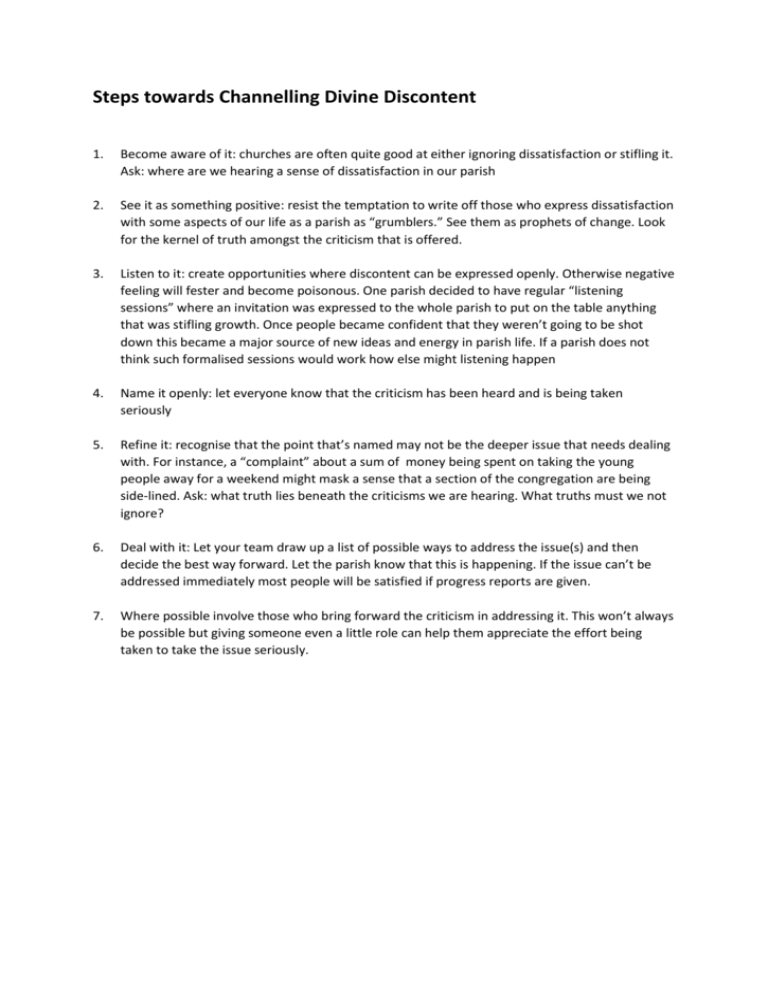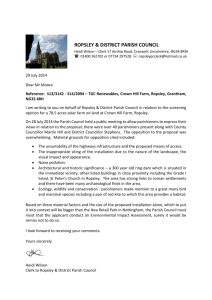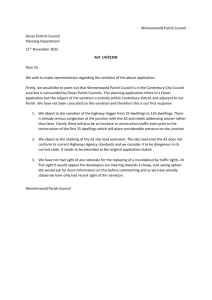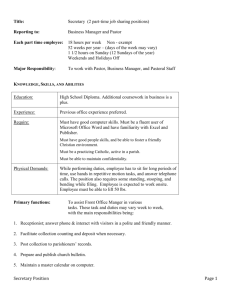Steps towards Channelling Divine Discontent
advertisement

Steps towards Channelling Divine Discontent 1. Become aware of it: churches are often quite good at either ignoring dissatisfaction or stifling it. Ask: where are we hearing a sense of dissatisfaction in our parish 2. See it as something positive: resist the temptation to write off those who express dissatisfaction with some aspects of our life as a parish as “grumblers.” See them as prophets of change. Look for the kernel of truth amongst the criticism that is offered. 3. Listen to it: create opportunities where discontent can be expressed openly. Otherwise negative feeling will fester and become poisonous. One parish decided to have regular “listening sessions” where an invitation was expressed to the whole parish to put on the table anything that was stifling growth. Once people became confident that they weren’t going to be shot down this became a major source of new ideas and energy in parish life. If a parish does not think such formalised sessions would work how else might listening happen 4. Name it openly: let everyone know that the criticism has been heard and is being taken seriously 5. Refine it: recognise that the point that’s named may not be the deeper issue that needs dealing with. For instance, a “complaint” about a sum of money being spent on taking the young people away for a weekend might mask a sense that a section of the congregation are being side-lined. Ask: what truth lies beneath the criticisms we are hearing. What truths must we not ignore? 6. Deal with it: Let your team draw up a list of possible ways to address the issue(s) and then decide the best way forward. Let the parish know that this is happening. If the issue can’t be addressed immediately most people will be satisfied if progress reports are given. 7. Where possible involve those who bring forward the criticism in addressing it. This won’t always be possible but giving someone even a little role can help them appreciate the effort being taken to take the issue seriously.











